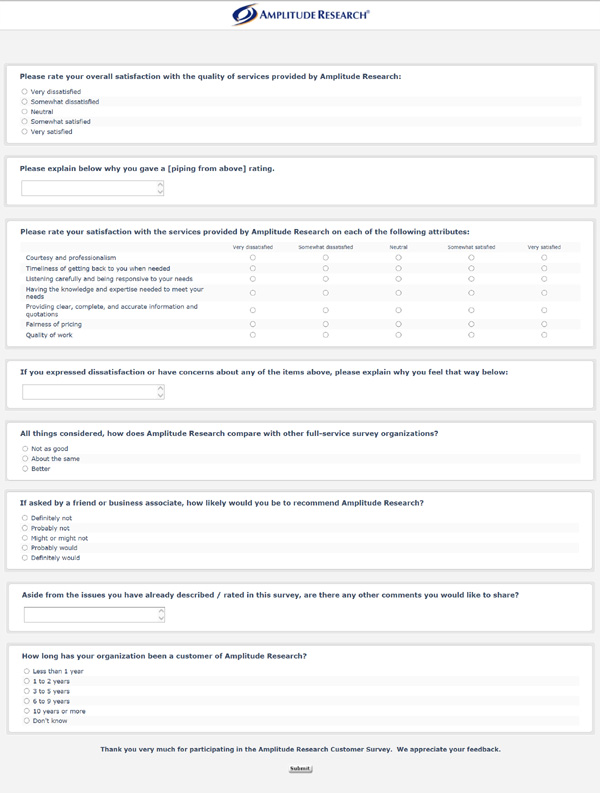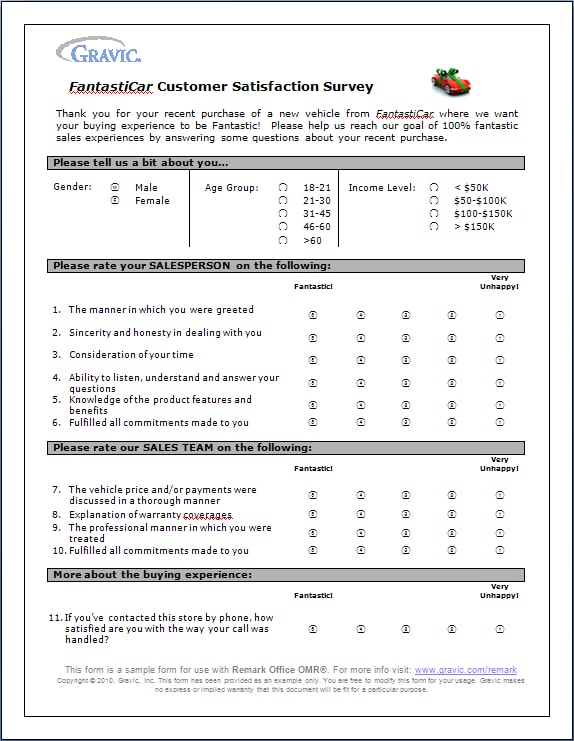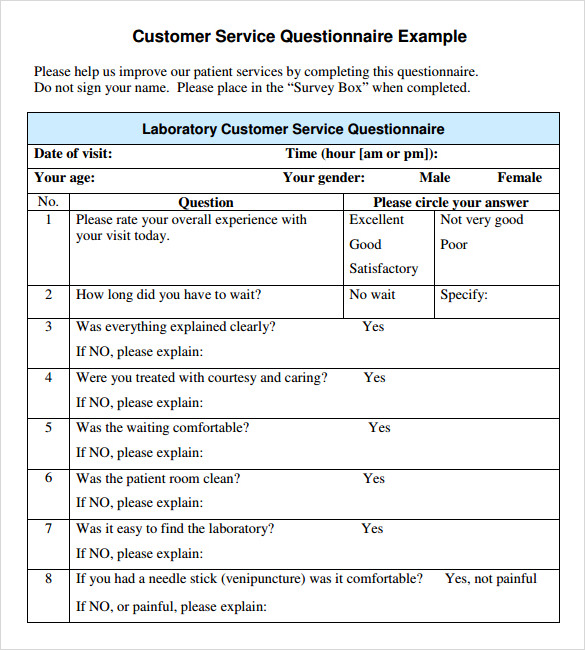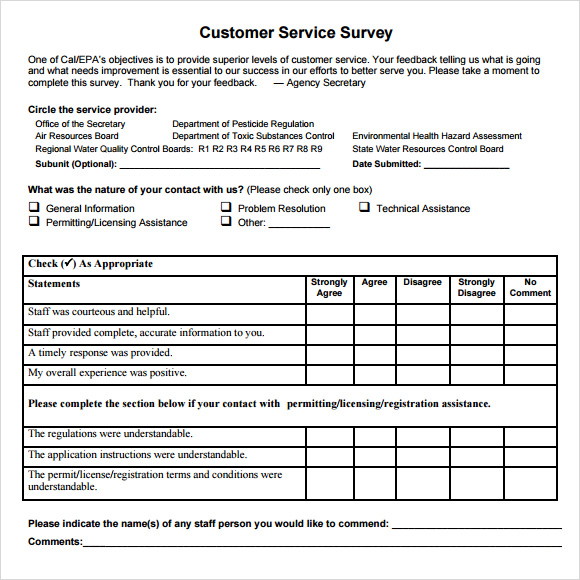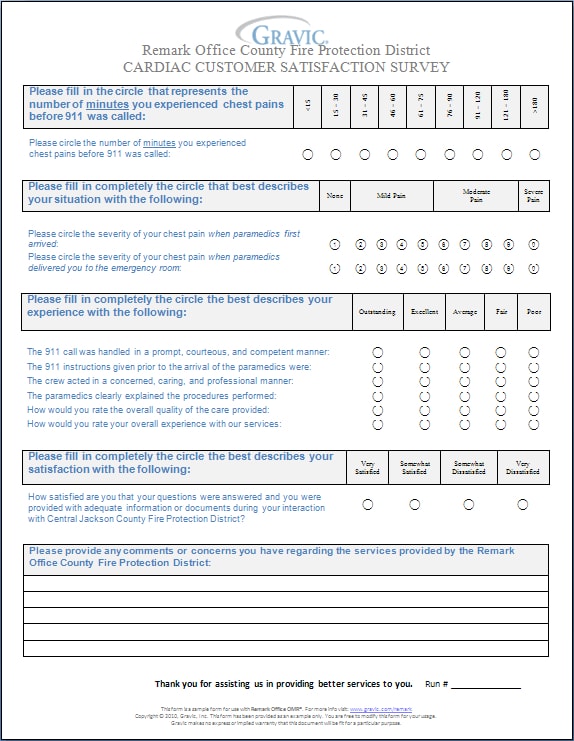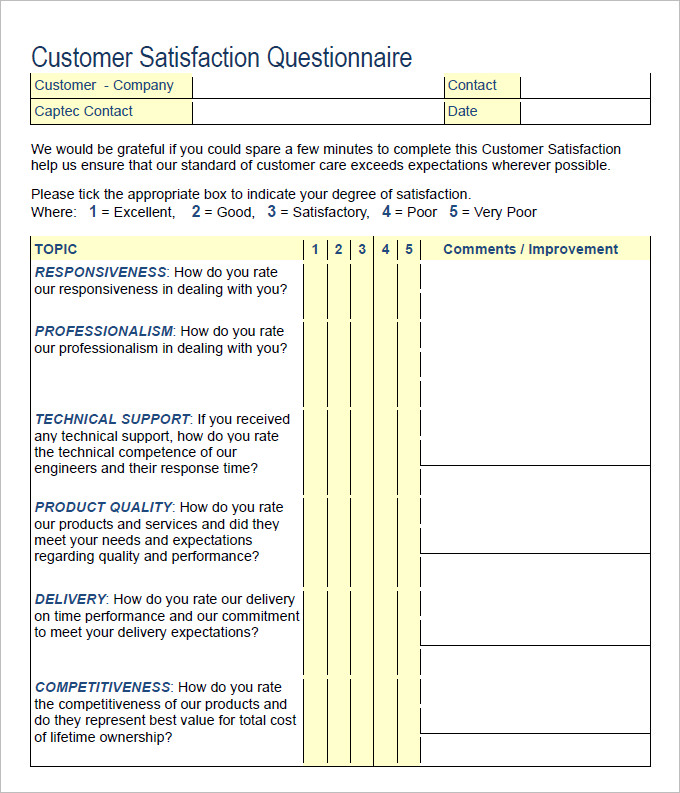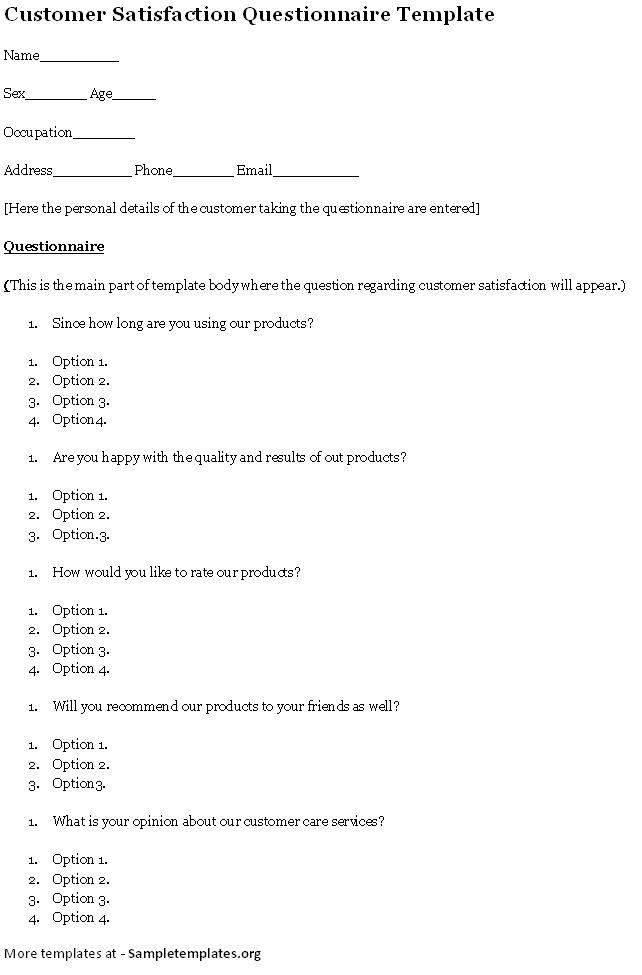6+ Consumer Questionnaire Examples to Download
Consumers are the heart of a business. Without them, there wouldn’t be a purchasing body to keep the business running. But to cater the needs of your target consumers, you must first understand what goes on inside their heads. To do so, you can direct a survey through the use of a simple questionnaire. Though creating a consumer questionnaire is no easy job, it’s certainly an approach that’s worth pursuing.
Consumer Satisfaction Survey Questionnaire Example
Car Dealership Satisfaction Questionnaire Example
Who Are Consumers in the Market Place?
While consumers and customers are often used interchangeably, they aren’t exactly the same entity. A customer merely buys a product, while a consumer uses it. But in most situations, a consumer can be a customer, and a customer can also be considered as a consumer. You may also see what is a survey questionnaire?
As a business owner, targeting both your customers and consumers is essential. For instance, a business manufacturing and distributing kid’s toys have children as their primary consumers. While the children are the actual users of these products, they aren’t the ones responsible for purchasing it. Instead, it’s the parents who make the final buying decision that will determine whether or not a transaction would carry through.
As for identifying which entity to target, it’s always important to focus on the end users of your offered goods. Given the example, your target consumers, the children, can easily persuade their parents to buy a toy they’ve picked out. You must gear your marketing efforts toward building a level of excitement to entice this group of individuals. This will prompt them to choose your product out of others, and ask their parents to make a purchase. You may also like research questionnaire examples & samples.
However, understanding the needs of your consumers can be a quite a challenge, which is why conducting various surveying campaigns through the use of questionnaires is necessary.
New Consumer Questionnaire Example
New Customer Service Questionnaire Example
The Role of Questionnaires in Marketing
Questionnaires have become a significant part of the marketing spectrum. In business, consumer questionnaires allow companies to gain feedback and insights on the demands of their target audience. It helps a business understand and measure the opinions, feelings, attitudes, and perceptions of a consumer regarding a particular subject matter. You may also check out student questionnaire examples.
Types of Questionnaires
There are two basic types of research questionnaires that may be used in collecting data. These are as follows:
1. Structured Questionnaires
This type of questionnaires are based predominantly on closed questions which generate quantitative data that are analyzed for certain trends and patterns. The good thing about structured questionnaires is that they require a lower cognitive load on a respondent, which reduces the amount of thinking that needs to be done for a person to complete the questionnaire. This leads to a higher response rate, with more accurate data acquired. You might be interested in assessment questionnaire examples.
2. Unstructured Questionnaires
Unlike structured questionnaires, this questionnaire type is a bit more qualitative in nature. They allow respondents to openly express their views and opinions on a given topic. But open-ended questions in a qualitative questionnaire can be a blessing and a curse, due to how difficult it is for a researcher to gather accurate and quality data from respondents.
Why Use Questionnaires?
As with every research method, questionnaires also possess their own share of treasures and pitfalls that must be weighed down accordingly before being employed. Knowing this, we’ve gathered the pros and cons of questionnaires to guide you in making the best possible decision. You may also see how to prepare a questionnaire.
Strengths
1. They are cost-efficient.
Questionnaires are known to be one of the most affordable channels for gathering data. Whether you’re handing them out manually or conducting an online survey, questionnaires have a relatively low cost with a generous market reach. Many printing firms offer great discounts for these orders, while online and mobile surveys may be placed on your website or application for potential respondents to see. You may also see survey questionnaire examples.
2. They are practical.
Apart from being an inexpensive marketing tool, questionnaires are also practical for collecting data. They can be managed in various ways, which makes them flexible enough for researchers to tailor according to a specific purpose. They offer a wide variety of methods to gather data and real-time feedback with ease.
3. They generate speedy results.
If you’re looking for a surveying medium that can produce quick and easy results, then questionnaires would be the perfect option. There are many online and mobile tools that allow fast delivery and easy access to your proposed respondents. This way, you can garner useful data in the shortest time frame possible. You may also like evaluation questionnaire examples & samples.
4. They allow user anonymity.
Some people find it difficult to express themselves properly when their identity is out in the open. This is why the need for anonymity is of incredible importance in data gathering. Fortunately, questionnaires allow respondents to remain anonymous for a more private form of communication. This concealment puts a person’s mind at ease, making it easier for them to answer truthfully to each question. You may also check out product questionnaire examples & samples.
5. They cover every aspect of a topic.
One of the biggest advantages of using a questionnaire is that there is no actual limit to the number of questions asked. Though keeping the questionnaire short for the benefit and convenience of both parties is also important, there’s nothing wrong with creating multiple survey questionnaires that connect with one another.
Limitations
1. They could be interpreted differently.
Despite the benefits of questionnaires in reducing the need for face-to-face encounters, there is one problem that researchers may have trouble with. The absence of a salesperson or marketer to address one’s concerns can cause respondents to misinterpret certain questions. This leads to inaccurate results that may hurt particular aspects of the study. The best way to solve such problem is to provide simple and clear questions to promote better understanding.
2. Large samples can take time to process and analyze.
Questionnaires produce a lot of data that may be difficult to analyze. Although structured questions can be graphed and tabulated for easy examination, unstructured questions are quite different, as responses are a lot more detailed compared to the former. To fix this, you must choose your questions carefully and limit the number of questions for each category. You may also see feedback questionnaire examples & samples.
3. Skipping questions.
The trouble with questionnaires is that people tend to skip items that they don’t understand or have no interest in answering. If a response is not required for a particular item, then most respondents would rather leave it blank to save time. For this reason, online questionnaires are deeply encouraged to accomplish higher completion rates. Here, you can alter the settings so that respondents are forced to provide answers in order to finish the survey.
4. Dishonesty may be an issue.
Even though anonymity is a given, the identity of the respondent may be required in some studies. Privacy protection is a common problem in the data gathering process, as this leads respondents to be untruthful with their answers. The information collected from the questionnaire would then be too unreliable for the researchers to draw accurate conclusions. You may also like income questionnaire examples & samples.
5. There could be a hidden agenda.
Bias can be a major issue in any form of research. Participants may either see your brand in an overly positive or negative light, which can greatly influence the outcome of your survey. To filter out a possible imbalance in your study, a pre-screening through a few indirect questions can help you remove these types of respondents.
Cardiac Customer Satisfaction Questionnaire Example
Consumer/Customer Satisfaction Questionnaire Example
Template for Questionnaire Example
A 5-Step Guide for Making the Perfect Consumer Questionnaire
To help you garner favorable results for your study, here is a step-by-step guide for creating an effective consumer questionnaire:
1. Conduct a Preliminary Research.
There are cases where a question can garner answers that are too broad for you to work with, which is why each item in your questionnaire must be targeted. What sort of answers do you wish to gather? What part of your topic do you want a particular question to focus on? You must compose questions that center on the primary purpose of your questionnaire. This way, you can gather responses that would be completely useful to your study. You may also see interview questionnaire examples.
2. Create a Draft.
It’s always good to start with a draft of your questionnaire to lessen the chances of any major changes with the final output. You must organize the questionnaire in a logical sequence to make it easier for respondents to answer. Avoid questions that could be interpreted in more ways than one, and be sure to use simple language that may be understood by the average person. And since consumers generally possess a short attention span, a smooth flow of questions will keep them engaged. You may also like examples of self-administered questionnaire & samples.
3. Offer an Incentive.
No matter how long it takes to complete your questionnaire, keep in mind that you’re still taking some time off of someone’s day. With that in mind, offering a few incentives may encourage a person to participate in your survey. Many companies give away discount coupons or shopping vouchers to reward respondents who willingly take part in your study. If you’re using an online questionnaire to gather information, then you can send out these incentives via email, or you can hand out these coupons after the questionnaire has been filled during personal meet-ups.
4. Decide on a Platform.
Setting up your questionnaire is easy once you have chosen the right platform. For surveys done over the internet, there are various data collection programs that provide an automated approach for you to take advantage of. This enables researchers to conduct surveys with customer questionnaires effortlessly.
5. Publicize the Questionnaire.
Once the questionnaire is good to go, you can begin advertising it on different platforms. This is important to ensure the highest possible completion rate is obtained from your campaign. Be sure to use multiple channels for this to gain more responses from a wider audience. You may also check out service questionnaire examples & samples.
As for consumer questionnaires that are handed out personally, you can advertise such by approaching potential participants directly to promote personal interaction. Once you have gotten them hooked, you can then make a request for them to answer your questionnaire.
Questionnaires are an essential component of data collection. While designing a questionnaire may sound like a simple task to carry out, it’s not until you sit down to write these questions that you fully realize how challenging it actually is. Planning and content creation are crucial to developing a good questionnaire, which is why you must pay close to each step in order to generate valuable results. You might be interested in health questionnaire examples.



